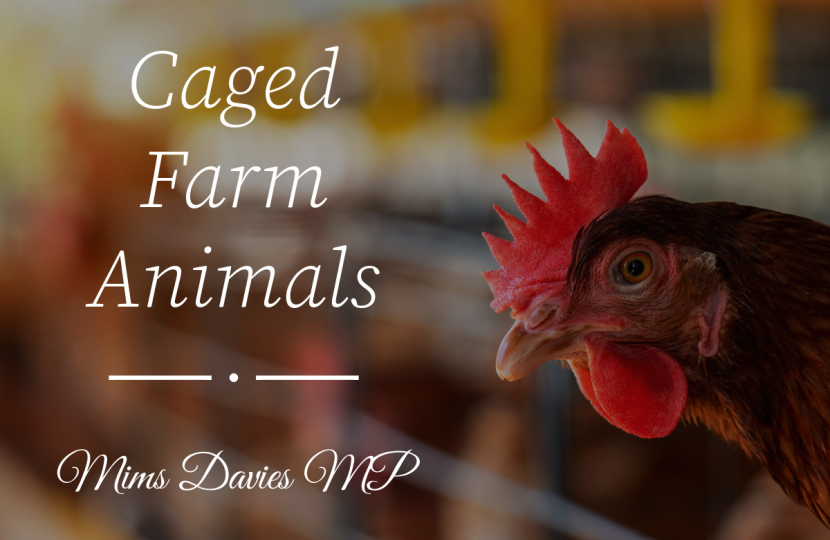
My colleagues and I take the welfare of all animals very seriously and the UK has some of the highest welfare standards in the world. As the highest ranked G7 nation on World Animal Protection's Animal Protection Index, the UK is a world leader on animal welfare.
Much progress has been made over the last few years on animal welfare in the UK. This includes passing the Animal Welfare (Sentience) Act, recognising the sentience of vertebrate animals and some invertebrate animals. In addition, the Animal Welfare (Sentencing) Act introduced tougher sentences for cruelty, increasing maximum sentences.
Regarding farmed animals, the previous Conservative Government’s Action Plan for Animal Welfare set out the ambition to improve the welfare of farmed animals across the board while working closely with the industry to ensure the sector can deal with the significant challenges currently being faced around the world, and still move towards sustainable higher welfare farming practices.
For example, the Animal Health and Welfare Pathway prioritised areas for additional improvement in the health and welfare for pigs, cattle, sheep and poultry. One of these priorities included supporting producers to transition away from confinement systems as well as to other higher welfare practices and systems.
I understand that some organisations, including the RSPCA, have launched campaigns urging the Government to publish consultations on phasing out the use of enriched colony cages for laying hens and of farrowing crates for pigs. The RSPCA has played a significant role in leading the way on encouraging high standards when it comes to this issue, with RSPCA Assured not permitting the use of colony cages for laying hens or farrowing crates for pigs.
I also note that the market itself has been driving the move to alternative systems for laying hens away from the use of cages, primarily towards free range and barn. The transition to non-cage egg production has been supported by the major supermarkets, which have pledged to stop selling shell eggs from hens kept in colony cages by 2025. That shift by retailers has accelerated the move away from colony cage systems. Free-range eggs account for more than 60 per cent of total egg throughput in the UK. In addition, the last Government announced a grant scheme to support laying-hen and pullet farmers with flocks of 1,000 birds or more to refurbish or replace existing housing, supporting a transition to cage-free systems. Regarding pigs, the UK is ahead of most other pig producing countries in terms of zero confinement farrowing, in that 40 per cent of the national sow breeding herd farrow freely on outdoor pig units with no option of confinement.
I do, however, share the concerns about the issues raised and have supported the gradual and continual improvement in farm animal health and welfare the Pathway provided through partnership between government, farmers, vets, the wider industry and the supply chain.
In a recent Westminster Hall debate, the Minister highlighted the fact that, as with cages for laying hens, the issue of ending the use of pig farrowing crates does not only affect the UK industry but is something that European trading partners are also considering. I understand that the Government is considering this issue carefully and I will monitor any developments closely.
Of course, if you have specific concerns about the welfare of an animal, I recommend reporting it to the police or the RSPCA.




